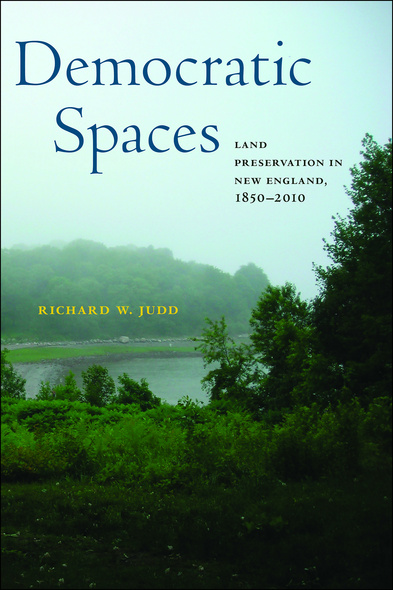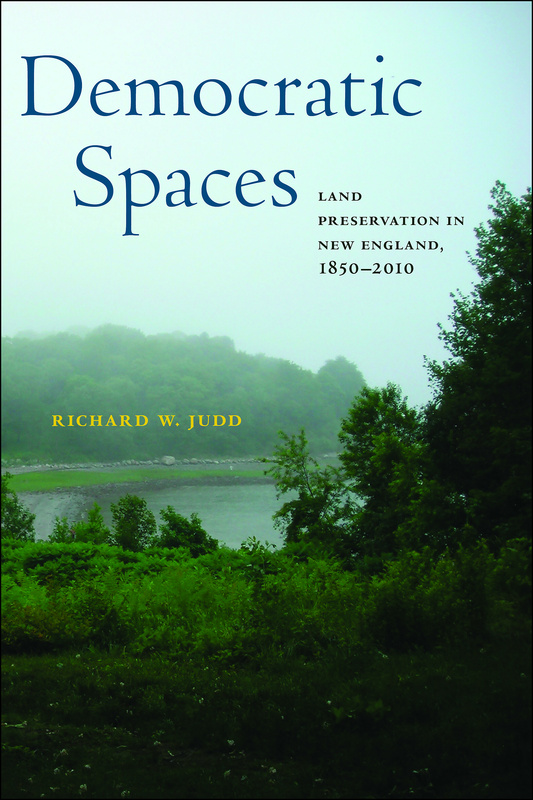
Democratic Spaces
Land Preservation in New England, 1850–2010
A contemporary map of New England, scaled to the township level, brings to light a dense pattern of protected areas ringing almost every town and city in the region. Big and small, rural and urban, these green spaces represent more than a century of preservation efforts on the part of philanthropic foundations, planning professionals, state agencies, and most importantly, community-based conservation organizations. Taken together, they highlight one of the most significant advances in land stewardship in US history.
Democratic Spaces explains how these protected places came into being and what they represent for New Englanders and the nation at large. While early New Englanders worked to save local fish, timber, and game resources from outside exploitation, no land-stewardship organizations existed before the founding of the Trustees of Public Reservations in Boston in 1891. Across a century of dramatic change, New England preservationists through this and other, smaller community-based land trusts preserved open spaces for an ever-widening circle of citizens.
‘Democratic Spaces will be the standard reference for the history of the land trust movement in New England, and will be a useful reference for both scholars and citizens interested in understanding the context for the emergence of the land trust movement and possibilities for the future.’—Michael Lewis, author of American Wilderness: A New History‘Judd’s description of the complex and evolving arrangements to preserve land in the Northeast is edifying. This well-documented work reflects a great deal of research, often drawing on newspaper reports and other contemporary sources.’—John Leshy, author of Our Common Ground: A History of America’s Public Lands
RICHARD W. JUDD is professor emeritus at the University of Maine and author of numerous books, including Second Nature: An Environmental History of New England.




